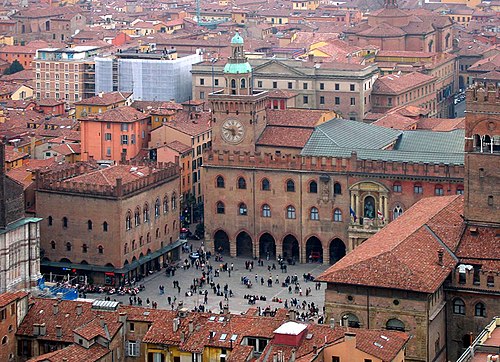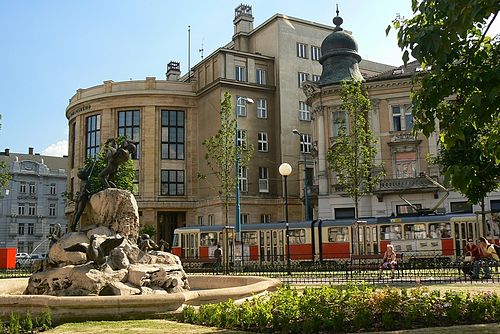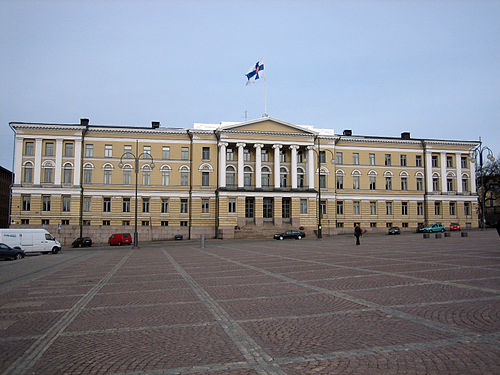Institutionnoun
A custom or practice of a society or community.
Institutionnoun
An organization similarly long established and respected, particularly one involved with education, public service, or charity work.
Institutionnoun
The building or buildings which house such an organization.
Institutionnoun
(informal) Other places or businesses similarly long established and respected.
Institutionnoun
(informal) A person similarly long established in a place, position, or field.
Institutionnoun
The act of instituting something.
Institutionnoun
(obsolete) That which institutes or instructs, particularly a textbook or system of elements or rules.
Institutionnoun
The act or process of instituting; as: (a) Establishment; foundation; enactment; as, the institution of a school.
Institutionnoun
Instruction; education.
Institutionnoun
That which instituted or established
Institutionnoun
An established or organized society or corporation; an establishment, especially of a public character, or affecting a community; a foundation; as, a literary institution; a charitable institution; also, a building or the buildings occupied or used by such organization; as, the Smithsonian Institution.
Institutionnoun
That which institutes or instructs; a textbook; a system of elements or rules; an institute.
Institutionnoun
an organization founded and united for a specific purpose
Institutionnoun
an establishment consisting of a building or complex of buildings where an organization for the promotion of some cause is situated
Institutionnoun
a custom that for a long time has been an important feature of some group or society;
Institutionnoun
the act of starting something for the first time; introducing something new;
Institutionnoun
a hospital for mentally incompetent or unbalanced person
Institution
Institutions, according to Samuel P. Huntington, are . Institutions can refer to mechanisms which govern the behavior of a set of individuals within a given community, and are identified with a social purpose, transcending individuals and intentions by mediating the rules that govern living behavior.
Universitynoun
Institution of higher education (typically accepting students from the age of about 17 or 18, depending on country, but in some exceptional cases able to take younger students) where subjects are studied and researched in depth and degrees are offered.
Universitynoun
The universe; the whole.
Universitynoun
An association, society, guild, or corporation, esp. one capable of having and acquiring property.
Universitynoun
An institution organized and incorporated for the purpose of imparting instruction, examining students, and otherwise promoting education in the higher branches of literature, science, art, etc., empowered to confer degrees in the several arts and faculties, as in theology, law, medicine, music, etc. A university may exist without having any college connected with it, or it may consist of but one college, or it may comprise an assemblage of colleges established in any place, with professors for instructing students in the sciences and other branches of learning. In modern usage, a university is expected to have both an undergraduate division, granting bachelor's degrees, and a graduate division, granting master's or doctoral degrees, but there are some exceptions. In addition, a modern university typically also supports research by its faculty
Universitynoun
the body of faculty and students at a university
Universitynoun
establishment where a seat of higher learning is housed, including administrative and living quarters as well as facilities for research and teaching
Universitynoun
a large and diverse institution of higher learning created to educate for life and for a profession and to grant degrees
University
A university (Latin: universitas, 'a whole') is an institution of higher (or tertiary) education and research which awards academic degrees in several academic disciplines. Universities typically offer both undergraduate and postgraduate programs.
















